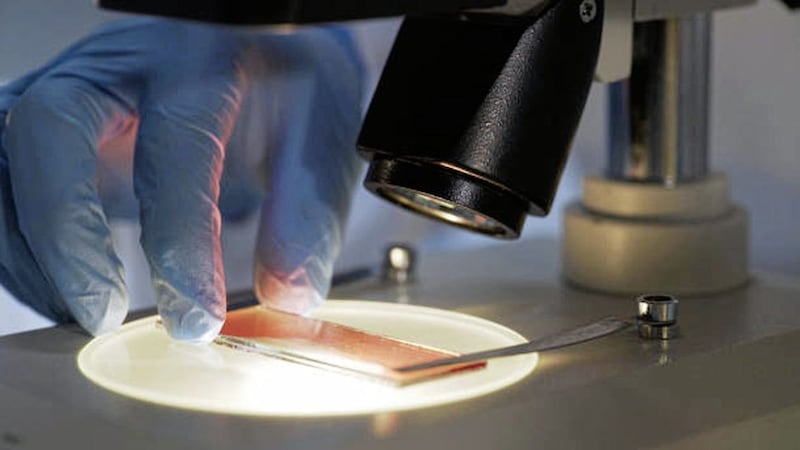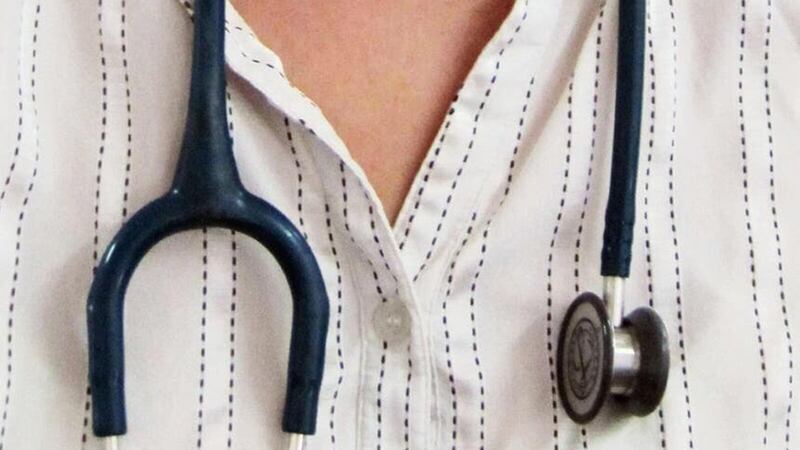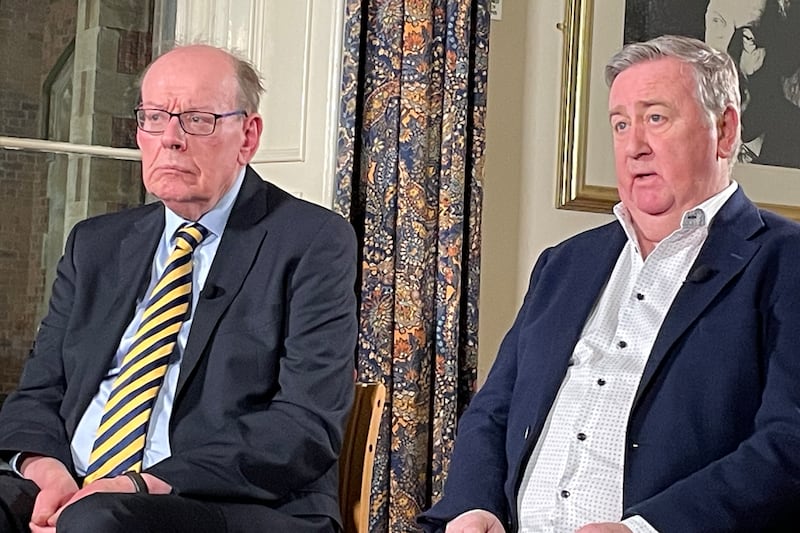A DEFECTIVE gene normally found in blood cancers can be treated with existing drugs that will ultimately improve survival rates, Belfast scientists have discovered.
Researchers from Queen's University Belfast (QUB) worked with colleagues from University of Birmingham on the breakthrough study examining tumours with mutations and how they responded to treatments for other rogue genes, including the BRCA/BRCA2 genes linked to breast and ovarian cancers.
The scientists believe these drugs could be used for patients carrying the defective SF3B1 gene which is commonly found in blood cancers including chronic lymphocytic leukaemia as well as rare forms of the disease such as cancers of the eye.
Dr Kienan Savage, the study's lead author and reader at the Patrick G Johnson Centre for Cancer Research at Queen's, said their findings have positive clinical implications for the treatment of many cancers.
"We specifically focused on this genetic mutation as it is found in several difficult to treat leukaemias and other cancers, and it affects so many cancer patients," he said .
"By deepening our understanding of this gene mutation, we have identified new ways of treating these cancers that could improve survival rates.”
Around 1 in 400 people have a faulty BRCA1 or BRCA2 gene which dramatically increases their risk of developing breast and ovarian cancer.
The new findings are published today in Cancer Research, a journal of the American Association for Cancer Research, and explains the SF3B1 mutation produces similar effects to the faulty BRCA1 gene by damaging DNA, preventing it from being repaired properly - and stopping it from making normal copies of itself.
The drugs - known as PARP inhibitors - target the cell’s DNA repair tools by locking them in place on the DNA. This stops DNA repair and causes the cancer cells to die.
The SF3B1 mutation occurs in up to 30 per cent of blood cancers and are difficult to treat as they occur predominantly in older patients who may not be considered fit for treatment.
Dr Katrina Lappin from QUB and first author of the study, added: “Our research shows that cancers with these specific mutations may be treated effectively with PARP inhibitor therapy drugs, which are less toxic, better at killing cancer cells with these mutations and can be taken at home in tablet form. This could have huge implications for improving outcomes and quality of life of people with these cancers.”
The scientists now want to set up clinical trials for affected patients to see if they can stop their cancer from spreading.
Michelle Mitchell, Chief Executive of Cancer Research UK, said their scientists helped discover the BRCA gene over 25 years ago and since then had "led the way" in developing treatments.
"Over the past two decades, PARP inhibitors have saved thousands of lives worldwide, and it will be interesting to see if this research in the future could lead to a similar impact for people with rarer cancers," she said.
The research was funded by the UK Medical Research Council, Cancer Research UK, Blood Cancer UK, Leukaemia and Lymphoma NI and Great Ormond Street Hospital Children's Charity.








